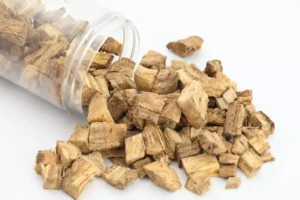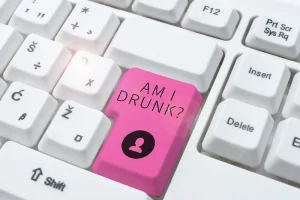
It is worth mentioning that excessive alcohol consumption can have detrimental effects on the blood clotting process. Alcohol abuse can lead to an increased risk of bleeding disorders, as well as liver damage that can disrupt the production of clotting factors. Blood thinners such as warfarin, rivaroxaban, or apixaban are frequently prescribed to reduce the risk of conditions such as stroke or heart attack. When alcohol is added to the mix, the anticoagulant effects are heightened, potentially leading to excessive bleeding.

Health Categories to Explore
- If you’ve received a diagnosis of DVT and are taking blood-thinning medication, you may need to limit your alcohol consumption to no more than one drink per day.
- The quick answer to this question is yes, alcohol does act as a blood thinner.
- When blood clots work like they’re supposed to, they form at the site of an injury that needs repair and they stay put.
- Alcohol can make platelets less sticky, resulting in a reduced ability to form a stable blood clot.
It also suggests long-term alcohol use may increase the dose requirements for general anesthesia. However, you can take many oral anticoagulants for longer periods. Depending on which one your healthcare provider prescribes, you may be able to take it indefinitely. This complication is usually only seen with long-term use of heparin (more than one month). It happens because heparin decreases the formation of new bone cells and increases the rate at which old bone cells are naturally broken down by your body. Your doctor will test you with an international normalized ratio (INR) test.
Thinking About Treatment?
As females retain more alcohol in the bloodstream than males, they are at higher risk of developing problems from combining alcohol with medications. There is a common belief that consuming alcohol can thin the blood, leading to various misconceptions and concerns. In this section, we will delve into the topic and separate fact from fiction surrounding the relationship between alcohol and blood thickness. According to research, moderate consumption of alcohol has been found to cause a small increase in your HDL (good) cholesterol.
- Alcohol can also affect the action of platelets, which are the components of the blood that form clots.
- Blood thinners slow parts of this process, making blood clots form more slowly.
- Below are answers to common questions about whether alcohol may thin the blood.
- Blood clotting is an extremely important function of the body that prevents bleeding.
- Alcohol consumption can lead to severe complications both during and after surgery.
- This can increase the risk of bleeding, particularly in individuals who consume excessive amounts of alcohol.
How does alcohol consumption affect my high cholesterol or risk of other cardiovascular issues?
- When alcohol is added to the mix, the anticoagulant effects are heightened, potentially leading to excessive bleeding.
- Of course, if you drink alcohol, drinking in moderation is always recommended.
- Anyone who experiences severe symptoms, such as constant bleeding, intense pain, or dizziness, should seek emergency care.
Short-term, you can expect an increase in blood pressure and higher cortisol levels. If you take blood thinners and wish to consume blood thinners and alcohol alcohol, speak to your healthcare provider first. They will consider the state of your health and the medications you take.
Alcohol may interfere with the action of certain medications, including blood thinners. Doctors recommend that people taking warfarin or drugs containing acetylsalicylic acid limit their intake of alcohol. Occasional, moderate alcohol use should be safe for most people who are taking blood thinners. The process of blood clotting involves several key components, including platelets, proteins called clotting factors, and fibrin. When a blood vessel is damaged, platelets rapidly adhere to the site and release chemicals that attract more platelets. This forms a platelet plug, which is the initial step in the clotting process.
Health Risks and Implications
If you drink alcohol frequently or drink large quantities, or if you have liver disease, let your prescriber know before treatment starts. You may need a dose adjustment in addition to testing of your prothrombin time (PT) or International Normalized Ratio (INR). If you or someone you love is struggling with alcohol addiction, professional treatment at a licensed rehab facility can help. The Recovery Village Ridgefield is a premier addiction treatment center in Ridgefield, Washington, that offers detox, inpatient and outpatient programs for alcohol use disorders.
Can you eat bananas while taking warfarin?

The safest way to avoid complications is to refrain from exceeding the recommended daily intake of alcohol. There is a widespread belief that alcohol has a thinning effect on the blood. While alcohol can temporarily affect certain aspects of blood function, it does not actually “thin” the blood in the way that medications like blood thinners do. When alcohol is consumed, it enters the bloodstream and begins to exert its effects on the body.
Impact of Alcohol on Blood Clotting
Our writers and reviewers are experienced professionals in medicine, addiction treatment, and healthcare. AddictionResource fact-checks all the information before publishing and uses only credible and trusted sources when citing any medical data. It’s recommended to limit alcohol intake to no more than one drink/day for women and no more than two drinks/day for men. It’s advisable to spread alcohol consumption over at least three days. They can help develop personalized treatment plans, which may include detoxification, therapy, counseling, and support to overcome alcohol addiction.

If a special occasion is approaching, aim to space out drinks from your medication doses and limit them to only one or two. When a blood vessel is damaged, platelets aggregate and form a clot to stop bleeding. However, excessive https://ecosoberhouse.com/ alcohol consumption can interfere with this process. To ensure accurate and personalized information regarding the effects of alcohol on blood thinning, it is recommended to consult with a healthcare professional.
